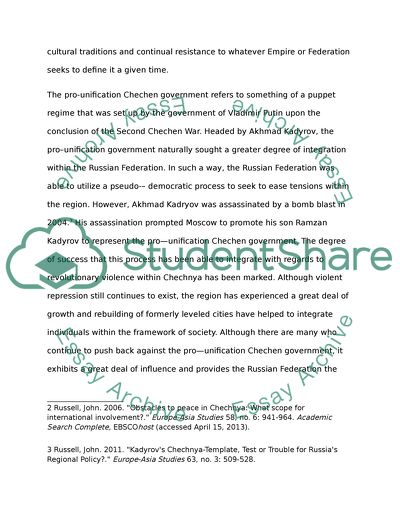Cite this document
(“Chechnya and Russia conflict Research Paper Example | Topics and Well Written Essays - 1250 words”, n.d.)
Retrieved from https://studentshare.org/history/1474060-chechnya-and-russia-conflict
Retrieved from https://studentshare.org/history/1474060-chechnya-and-russia-conflict
(Chechnya and Russia Conflict Research Paper Example | Topics and Well Written Essays - 1250 Words)
https://studentshare.org/history/1474060-chechnya-and-russia-conflict.
https://studentshare.org/history/1474060-chechnya-and-russia-conflict.
“Chechnya and Russia Conflict Research Paper Example | Topics and Well Written Essays - 1250 Words”, n.d. https://studentshare.org/history/1474060-chechnya-and-russia-conflict.


